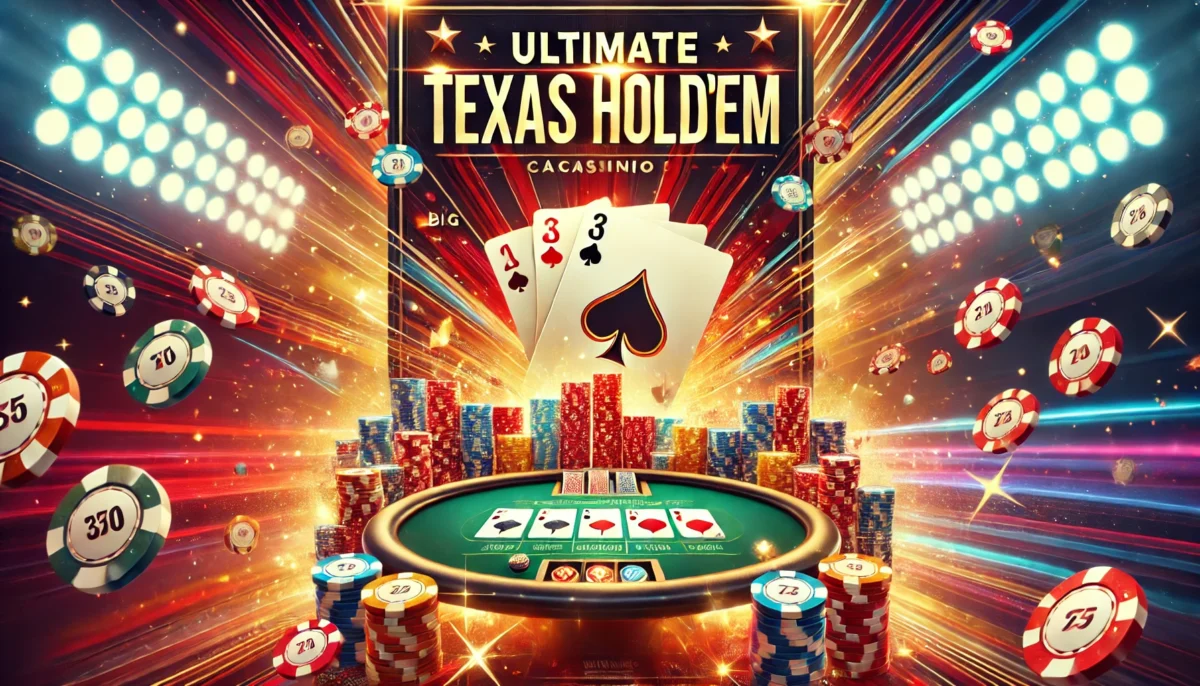We at Dewakoin are excited to share our expertise in casino gambling. Here, the art and science of casino come together for a unique experience. Our mission is to offer a secure, fun, and rewarding online gaming experience for our players. We believe knowing the art and science of casino is key to winning big.
Casino gambling is a complex and fascinating world. It uses psychology and architecture to influence player behavior and boost revenue. By learning about casino design and winning strategies, we can understand the art and science better. This knowledge helps us increase our chances of success.
Key Takeaways
- Understanding the art and science of casino is crucial for maximizing winnings
- Casinos use psychology and architecture to influence player behavior and maximize revenue
- Exploring the secrets of casino design and strategies for winning can increase chances of success
- The art of casino and science of casino are intertwined, and understanding both is essential for success
- By mastering the art and science of casino, players can make informed decisions and increase their chances of winning
The Psychology Behind Casino Success
Casino psychology is key in shaping how players behave and make choices. By understanding casino psychology, players can get ahead and make better decisions. Casinos use tricks like sensory overload and strategic game placement to influence players.
A big part of player mindset is why people gamble. A survey of 5,500 gamblers found that the biggest reason is the chance to win big. Fun and excitement are also big reasons. This shows how important emotional control is in managing hopes and making smart choices.
To win, it’s crucial to know what affects player mindset and decision-making. By getting the psychological side of casino games, players can improve their emotional control techniques. This helps them stay focused and avoid acting on impulse.
Making good decisions under pressure is key to casino success. By mixing casino psychology with a solid grasp of the games and their odds, players can make better choices. This boosts their chances of winning.
Fundamental Principles of Casino Mathematics
Mastering casino mathematics is key to success in gaming. At Dewakoin, we aim to offer a safe and fun online gaming space. We explore probability theory and odds to help you grasp the math behind casino games.
Casino math is the base of casino games. Knowing the basics helps you make smart choices. Most casino games have a house edge between 1% and 15%. For instance, Blackjack’s edge is as low as 0.5% with the right strategy. Slot machines, though, can have a much wider edge, usually between 2% and 10%.
Here’s a quick look at the house edge for various casino games:
| Game | House Edge |
|---|---|
| Blackjack | 0.5% |
| Slot Machines | 2-10% |
| Roulette | 2.7-5.26% |
By learning casino math, you can make better choices and boost your winning chances. At Dewakoin, we’re committed to helping you succeed in online gaming.
Understanding House Edge and Game Selection
The house edge is a key concept in casino games. It’s the built-in advantage the casino has over players. This ensures they make a profit, no matter the player’s outcome. To beat the house edge, players must choose their games wisely.
When picking games, calculating the house advantage is key. Games like Blackjack, Video Poker, and Craps have a lower edge. This means players have a better chance of winning. By comparing different games, players can make better choices.
A risk-reward analysis is also vital. Players must weigh the risks and rewards of each game. This helps them decide based on their goals and how much risk they can take. By understanding the house edge and making smart choices, players can win more and lose less.
Games like Roulette offer a nearly 50/50 chance on certain bets. But, the payout for specific numbers is 37:1, making it less favorable. Knowing the odds and payouts helps players make better bets.
Success in casino games comes from making smart decisions and managing risk well. By understanding the house edge, choosing games wisely, and analyzing risks, players can win more and lose less.
Mastering Probability Theory in Gambling
Probability theory is key in gambling, and knowing it well is vital for winning. At Dewakoin, we aim to give our players the tools to make smart choices. This can boost their chances of winning.
Understanding probability helps grasp the odds in games like blackjack, slots, and poker. For example, in blackjack, the edge for the house can be as low as 0.5% with the right strategy. Slots, on the other hand, have a house edge from 2% to 15% or more, depending on the game. Knowing probability can help players make better choices and up their winning odds.
Important ideas in probability include independent events, conditional probability, and expected value. These ideas help players see the chances of different outcomes. For instance, the chance of getting a pocket pair in Texas Hold’em is about 6%. The odds of hitting a flush by the river with suited cards are around 35%.
By mastering probability theory, players can get ahead and win more. We suggest players take time to learn the basics of probability. This knowledge will help them in their favorite casino games.
Essential Bankroll Management Strategies
Managing your bankroll is key to success in casino games. At Dewakoin, we help our players manage their funds well. Bankroll management means setting win/loss limits and using betting progression to reduce risks and increase wins.
To start managing your bankroll, set a budget and stick to it. Decide how much you can spend and set win/loss limits to prevent big losses. Betting 1%-3% of your bankroll is a good rule to follow.
Betting progression is another important part. It’s about changing your bet amounts based on wins or losses. This keeps you within your budget and stops you from chasing losses. Popular methods include flat betting and percentage-based betting.
By using these bankroll management strategies, you can reduce risks and increase your wins. Always set win/loss limits and use betting progression to control your bankroll. With the right bankroll management, your online gaming can be safe, fun, and rewarding.
The Art of Table Game Strategy
Mastering table game strategy is key to winning at casino games. At Dewakoin, we offer exciting games with high winning potential. Knowing table game strategy and winning tips is crucial.
We’ve developed a detailed approach to table game strategy. By mixing math with instinct, players can win more. For instance, in Baccarat, knowing the house edge and making smart bets can change the game. The player bet has a 1.24% house edge, while the banker bet is slightly better at 1.06%.
Here are some winning tips for table games:
- Learn the game’s rules and odds
- Manage your bankroll wisely
- Make bets based on math
By using these tips and a solid strategy, you can boost your winning chances. At Dewakoin, we aim to give you a safe, fun, and rewarding online gaming experience.
Unlock the Secrets of Casino Gambling: Exploring the Art & Science
We think that winning at casino games needs both mathematical analysis and intuitive play. Knowing how casino games work helps players make better choices. We give players the tools and strategies to win at casino games.
Our main idea is casino secrets. It’s about understanding the details of casino games to make smart choices. By mixing mathematical analysis with intuitive play, players can create a winning strategy. This strategy considers the odds, chances, and possible results of each game.
Here are some tips for using mathematical analysis and intuitive play together:
- Learn the rules and odds of each game
- Create a strategy based on probability and statistics
- Keep practicing and improving your skills
By following these tips and focusing on our mission, we believe players can unlock casino secrets. This way, they can achieve success in the world of casino gaming.
Digital Age Casino Gaming: Online Platforms
We’re excited to dive into the world of online casino gaming. Digital gaming and casino platforms have changed how we play. The online casino industry is growing fast, expected to hit $127 billion by 2027. This is a thrilling time for both players and operators.
Online casino platforms are at the core of this growth. They offer a wide variety of games and services. Mobile gaming makes up over 50% of online casino traffic. This shows how important mobile optimization is for a good user experience. Our platform lets players enjoy their favorite games anywhere, anytime.
Some key benefits of online casino platforms include: * Convenience and accessibility * Wide range of games and services * Mobile optimization for on-the-go play * Opportunities for social interaction and community building
We’re dedicated to providing a safe, fun, and rewarding experience for our players. We offer the latest slot games, high winning potential, and focus on player satisfaction. We’re confident our platform will meet the needs of all players.
| Feature | Benefit |
|---|---|
| Mobile optimization | Convenience and accessibility |
| Social interaction | Community building and engagement |
| Wide range of games | Something for every player |
Advanced Techniques for Professional Players
Professional players know how crucial it is to stay ahead. That’s why they use advanced techniques like card counting and pattern recognition. These skills can greatly boost their winning chances.
Card counting means tracking high and low cards to get an edge. It needs a strong grasp of probability and math. Pattern recognition helps players spot trends and make smart choices.
- Developing a solid understanding of probability theory and mathematical concepts
- Practicing card counting and pattern recognition techniques
- Staying up-to-date with the latest trends and developments in the industry
By following these tips and always learning, professional players can excel. They can achieve success in casino gaming.
Legal and Ethical Considerations in Casino Gaming
We know that casino gaming is a complex world. It’s important for players and operators to understand legal considerations and ethical considerations. At Dewakoin, we aim to offer a safe, fun, and rewarding online gaming experience.
Exploring casino gaming means looking at legal considerations too. This includes knowing the laws and rules for online gaming. It also means following ethical considerations to act responsibly.
Important legal considerations in casino gaming include:
- Following laws and rules
- Keeping player data and privacy safe
- Ensuring fair and clear gaming practices
By focusing on ethical considerations and following legal considerations, we aim for a great experience for everyone. Our goal is to create a secure and rewarding online gaming space. We’re dedicated to upholding the highest standards of integrity and responsibility in casino gaming.
Conclusion: Mastering the Casino Experience
As we wrap up our look into casino gambling, it’s clear that mastering the casino experience is a mix of math, instinct, and ethics. This guide has given you the tools to dive into casino gaming. You now have the knowledge to up your chances of winning.
Unlocking casino secrets starts with understanding probability, managing your bankroll, and knowing game strategies. By doing these, you can improve your chances and enjoy a great casino experience.
Always gamble responsibly and ethically. Think about the legal and moral sides of your actions. Keep a balance between fun and being smart with your money. With the right approach and knowledge, you’re ready to start your casino adventure with excitement and hope for success.
FAQ
What is the mission of Dewakoin?
Dewakoin aims to offer a safe, fun, and rewarding online gaming space. We provide the newest and most thrilling slot games. This ensures every player has a fair shot at winning.
How does Dewakoin address the psychology behind casino success?
Dewakoin focuses on the mental aspect of casino games. We teach players to make smart choices under pressure. This includes understanding their mindset and controlling their emotions.
What are the fundamental principles of casino mathematics that Dewakoin covers?
Dewakoin dives into casino math, like probability, odds, and expected value. This helps players grasp the math behind casino games.
How does Dewakoin help players understand the concept of house edge?
Dewakoin explains the house edge, game choice, and risk vs. reward. This gives players the knowledge to make smart decisions and increase their winnings.
What does Dewakoin teach about probability theory in gambling?
Dewakoin explores probability, including independent events and expected value. This gives players a deep understanding of gambling math.
What bankroll management strategies does Dewakoin recommend?
Dewakoin offers key bankroll management tips. These include setting limits, using betting systems, and planning for the long term. This helps players manage their funds well.
How does Dewakoin cover the art of table game strategy?
Dewakoin looks into table game strategy, offering tips for winning. This gives players the edge they need to boost their winnings.
What advanced techniques does Dewakoin cover for professional players?
Dewakoin teaches advanced gaming techniques for pros. This includes card counting, pattern recognition, and statistical tracking. It helps players improve their game.
What legal and ethical considerations does Dewakoin address in casino gaming?
Dewakoin discusses the legal and ethical sides of casino gaming. It provides players and operators with the knowledge to navigate the rules.




